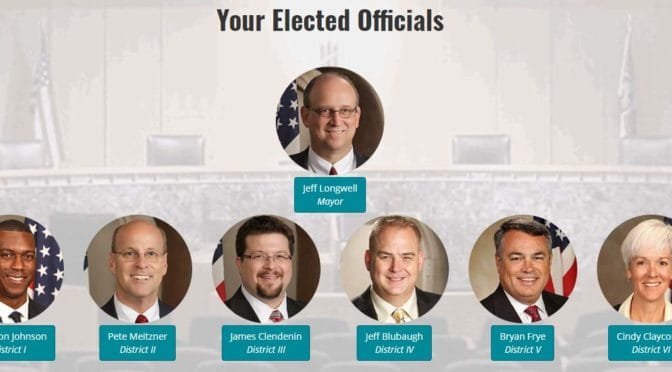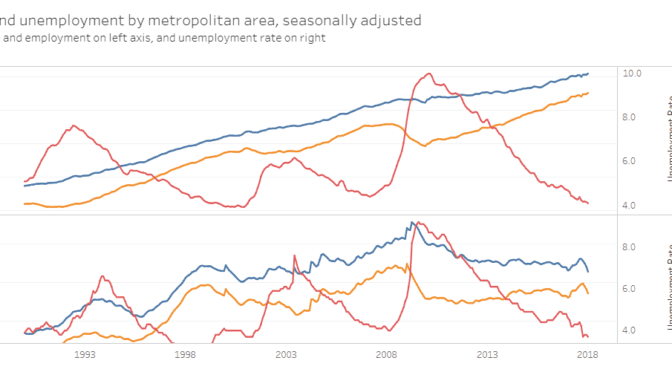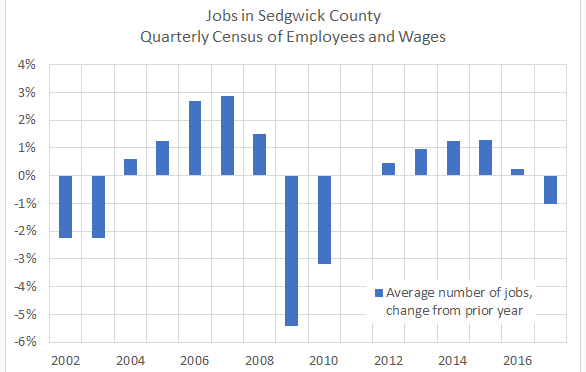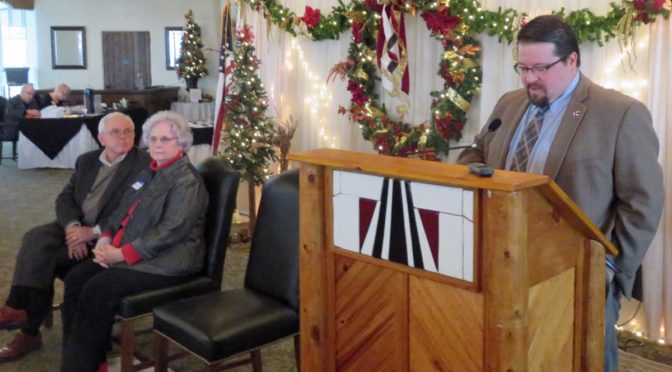Tag: Sedgwick county government
-

From Pachyderm: Commission Candidates Hugh Nicks and Richard Ranzau
From the Wichita Pachyderm Club: Sedgwick County Commission candidates Richard Ranzau and Hugh Nicks. These are Republicans vying for the District 4 nomination.
-

Sedgwick County jobs
Sedgwick County had fewer jobs in 2017 than in 2016.
-

Wichita unemployment rate falls
For April 2018, the unemployment rate in the Wichita metropolitan area fell, and the number of jobs grew.
-

Wichita in ‘Best Cities for Jobs 2018’
Wichita continues to decline in economic vitality, compared to other areas.
-

Wichita metropolitan area population in context
The growth of population in Wichita compared to other areas.
-

Wichita unemployment rate falls
The unemployment rate in the Wichita metropolitan area fell. So too did the number of jobs.
-

Intrust Bank Arena loss for 2017 is $4,222,182
As in years past, a truthful accounting of the finances of Intrust Bank Arena in downtown Wichita shows a large loss.
-

Employment in metropolitan areas
An interactive visualization of labor force, employment, and unemployment rate for all metropolitan areas in the United States.
-

Sedgwick County’s David Dennis on economic development
Following the Wichita Mayor, the Chair of the Sedgwick County Commission speaks on economic development.
-

Greater Wichita Partnership asks for help
Wichita’s economic development agency asks for assistance in developing its focus and strategies.
-

From Pachyderm: Local legislative priorities
From the Wichita Pachyderm Club: Local government officials present their legislative priorities.
-

Spirit expands in Wichita
It’s good news that Spirit AeroSystems is expanding in Wichita. Let’s look at the cost.